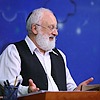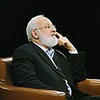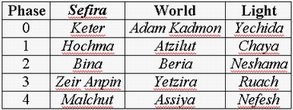Time, Space, And The “Self” Are Depicted In Our Perception By One Force
 The Zohar: It is known that everything is comprised of “world, year, and soul.”
The Zohar: It is known that everything is comprised of “world, year, and soul.”
One perceives oneself and the world through limitations called “world, year, and soul.” “World” is everything one perceives as the space surrounding him, in which he and everything else exist. “Year” is the sequence of actions, times, and states that one goes though, perceiving them as an order of cause and consequence. This gives one the perception of life and the flow of time. The soul is the person who feels that he exists and lives within space and time.
Thus, there is the person, the world that surrounds him, and the perception of a changing reality – world, year, and soul. This is how we all perceive our existence. However, in actuality, the limitations of “world, year, and soul” do not exist. They are all the Upper Force, which depicts these feelings, coordinates, and boundaries inside us.
In the science of Kabbalah we learn that there is Malchut and Bina. When we perceive our existence in Malchut, we feel that we are standing on earth; when we perceive our existence in Bina, we feel that we are in the clouds; and when we perceive that we are situated between Malchut and Bina, we feel that we are between the sky and the ground.
The Upper Forces depict for us the whole world that surrounds us and our existence in it. They are like vectors on a computer screen, giving us a sensation of time and space, which consist of many objects. However, all of these are just forces that illustrate a colorful, three-dimensional picture for us and within us.
All of this is, in fact, one force, but its influences are presented to us in a way that separates them into time, space, and motion, or, as The Book of Zohar says, into world, year, and soul. As a result, we feel that we exist in a world where everything moves and exists in a continuous fashion.
However, all of this is the influence of one force upon us. It is this force that creates all these various impressions, giving us a sensation of ourselves, a three-dimensional space, and time.





 A question I received:
A question I received:  Bina contains the entire Light of Hochma, but only in order to prefer the Light of Hassadim over it. In other words, it prefers bestowal over fulfillment. What does this mean?
Bina contains the entire Light of Hochma, but only in order to prefer the Light of Hassadim over it. In other words, it prefers bestowal over fulfillment. What does this mean?


 Two questions I received from students around the world:
Two questions I received from students around the world:




